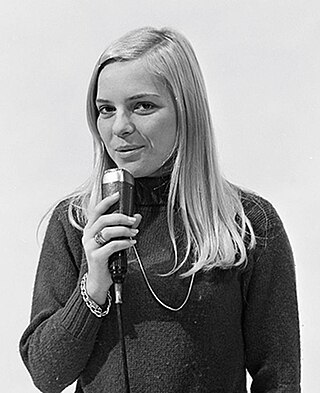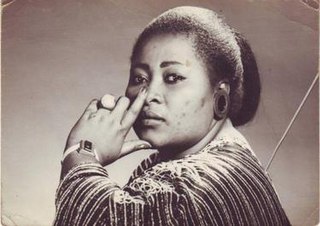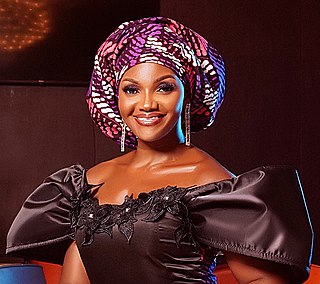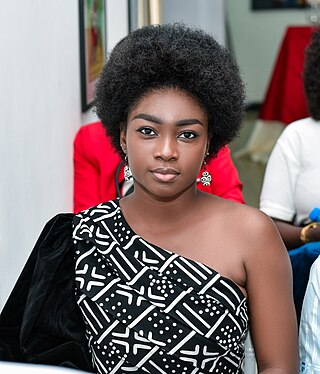Makossa is a music genre originating in Douala, Littoral Region, French Cameroons in the late 19th century. Like much other music of Sub-Saharan Africa, it uses strong electric bass rhythms and prominent brass. Makossa uses guitar accompaniments, in the forms of solo and rhythm guitar, with a main singer and a choir of backup singers, with the focus being on the texture of the guitar, the role it plays in the song, the relationship between it and other instruments, the lyrical content and languages sung as well as their relationship with the music, the uses of various percussion instruments, including the bottle, the groove of the bass as well as the drums, and the use of technical knowledge and microprocessors to make the music. It is in common time (4/4) for the vast majority of cases. Language-wise, it is typically sung in French, Duala or Pidgin English. Tempo-wise, it is typically in between 130 and 170 BPM. It traditionally consisted of guitar-picking techniques that borrows from bikutsi; with a guitar-structure of a guitar switching from solo to rhythm from assiko; supplanted with complex bass grooves, and gradually picked up on brass section, from funk and later in the 70s, string section, from disco. It along with this acquired the sebene from Congolese rumba. In the 1980s makossa had a wave of mainstream success across Africa and to a lesser extent abroad. It is considered to be one of the greatest Cameroonian and even African "adventures" as a music.

The music of the Cameroon includes diverse traditional and modern musical genres. The best-known contemporary genre is makossa, a popular style that has gained fans across Africa, and its related dance craze bikutsi.

Isabelle Geneviève Marie Anne Gall, known professionally as France Gall, was a French yé-yé singer. In 1965, at the age of 17, she won the tenth edition of the Eurovision Song Contest with the song "Poupée de cire, poupée de son", representing Luxembourg. Later in her career, she became known for her work with singer-songwriter Michel Berger, whom she married in 1976. Her most successful singles include "Résiste", "Ella, elle l'a" and "Évidemment".

Emmanuel N'Djoké "Manu" Dibango was a Cameroonian musician and songwriter who played saxophone and vibraphone. He developed a musical style fusing jazz, funk, and traditional Cameroonian music. His father was a member of the Yabassi ethnic group, while his mother was a Duala. He was best known for his 1972 single "Soul Makossa".The song has been referred to as the most sampled African song in addition Dibango, himself, as the most sampled African musician in history. He died from COVID-19 on 24 March 2020.

Laure Monique Pester, professionally known as Lorie, is a French singer. She has sold over 8 million albums and singles worldwide as of December 2007. Her first studio album Près de toi was certified triple platinum in France and she followed it with five other certified albums. Lorie is also an actress, who lent her voice for many French versions of international movies including Stuart Little 2. She stars in the TF1 TV film De feu et de glace, and guest-starred as a Parisian model on the American soap opera The Young and the Restless. She has also launched a clothing line, "Lorie", only found in the Z stores in France. Her contract with Z ended in early 2009.

Jenifer Yaël Juliette Dadouche-Bartoli, known by the mononym Jenifer, is a French singer.
Jeane Manson is an American model, singer, and actor, born in Cleveland, Ohio. Her first name was changed from "Jean" to "Jeane" because, as all of her career was in France after 1974, the French would have otherwise thought that she was a man, "Jean" being the French for "John".
Prince Eyango is a Cameroonian singer, guitar player, songwriter, performer, and record producer. Popularly known as KING MOUAN NKUM, Le Roi Des Montages is the 3rd child of Eyango family. He made his professional debut in 1983. By 1986 Ndedi Eyango developed a musical style merging both pop and traditional Cameroonian Makossa music. The son of a pastor, Ndedi Eyango sings in French, Pidgin English, Douala, and Mbo'o languages. His biggest hit, "You Must Calculer" won best song of the year in 1987, best selling album of the year and Eyango won the Cameroonian "Best Artist of the Year Award".
Marc Liénart van Lidth de Jeude, known professionally as Art Sullivan, was a Belgian singer. He was successful in many countries, including Belgium, France, Portugal and Germany. Art Sullivan sold ten million records between 1972 and 1978. Compilations of his hits are still released.

Michèle Torr is a French singer and author, best known in non-Francophone countries for her participation in the Eurovision Song Contest for Luxembourg in 1966 and for Monaco in 1977.

Elizabeth Bessem Ayamo Manga, also known as Bébé Manga, was a Cameroonian makossa singer whose best-known song is "Ami O". She is considered one of the most popular makossa singers of the 1980s.

Charlotte Dipanda is a Cameroonian singer, who plays mostly acoustic music. Her lyrics are in French, her native language Bakaka, and in Douala.

Yvon Éthier better known as Patrick Norman is a Canadian country musician. He sings both in French and English and has had hits in Quebec and in the rest of Canada.

Joyce Jonathan is a French singer and songwriter.

Ebanda Manfred was a Cameroonian makossa singer. He is also composer of the hit song "Amie" later made famous by Bébé Manga.

Kien Rennise Nde, known by her stage name Reniss, is a Cameroonian singer and songwriter. Reniss sings in English, French, Pidgin, and Ngeumba. Reniss became well-known in the African music scene after releasing her music video "La Sauce" on May 6, 2016.

Kareyce Fotso is a Cameroonian singer who performs around the world and in various styles, including Afro pop, blues and mangambeu.
Charlotte Mbango Samè was a Cameroonian Makossa singer.

Danielle Eog Makedah, born July 21, 1982, in Paris, is a Cameroonian singer-songwriter of soul, R&B and jazz music. She began her career on the Cameroonian hip-hop scene in 2000. She accompanied many artists on stage and had multiple collaborations for more than 10 years before the release of her first solo album in 2013. She was a finalist for the Prix Découvertes RFI in 2013. She is a member of the collective Hip Hop Developed, in which she has been playing since 2011 alongside Lady B, Teety Tezano, Adango Salicia and rapper Sadrak.

Hortavie Mpondo is a Cameroonian actress, model, and comedian.















